Published Sep 18, 2013
One Trek Mind: 5 Reasons To Stop Worrying And Love "Spock's Brain"
One Trek Mind: 5 Reasons To Stop Worrying And Love "Spock's Brain"
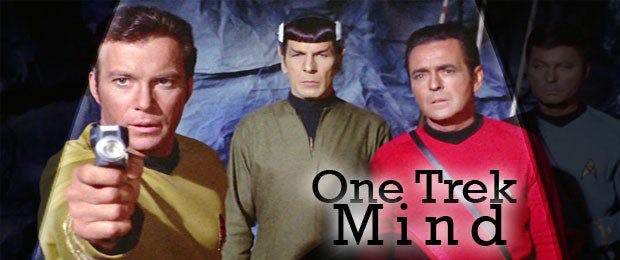
“Brain and brain! What is brain?!?”
This week marks the 45th anniversary of one of Star Trek's not-exactly-sharpest moments. As TOS fans gathered around their color Zeniths and tuned into NBC (at the new and unfriendly 10 p.m. Friday time slot), some were left scratching their brain-encasing heads. Was this our progressive and innovative science fiction program we'd come to love or was this a Samuel Z. Arkoff film?
The episode, of course, was “Spock's Brain” - one hell of a way to kick off a new season of television. For a show whose notions of future tech were usually grounded in some sort of reality (or at least paid good lip service to actual science), this one really pushes it to the limit. You see, there is a society that seems to be highly advanced, but is actually run by a system of computers called The Controller. But it is running out of juice. It needs something mega-powerful. It needs Spock's brain!
Much of the episode is Captain Kirk running around looking for his beloved first officer's brain. Alas, this was before the modern zombie had been introduced to pop culture, so he doesn't wander the corridors of the Enterprise shouting “Braaaaaains!” But he does go to a planet where the women are sexy, the men are brutes and everyone is dumb as a stump.
And yet – this is not the worst TOS episode. No way. (“And the Children Shall Lead” is far, far worse.) More importantly, if you allow yourself to give into the spirit of the thing – and ignore the wretched sexism – it is actually quite a bit of fun.
To that end, I say let's take this episode back from the haters. Here, then, are Five Reasons to Stop Worrying and Love Spock's Brain. (I tried for 10, but it was hard. Let's not push it, okay?)
HIS BRAIN IS GONE
The word “brain” is said 37 times in “Spock's Brain.” And each time it's hard (and harder) to wonder how the actors said it with a straight face.
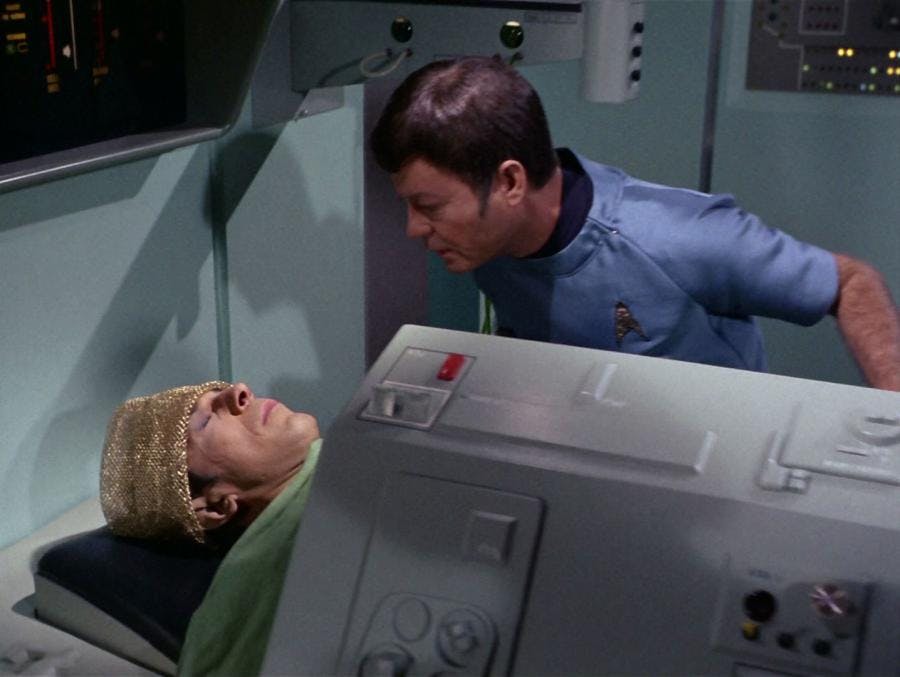
Maybe it's just me, but there's something about combing the galaxy looking for a stolen brain that reminds me of little kids playing in the backyard, making up a story as they go along. “Where are you going to look for Spock's brain?!?” McCoy asks. “How are you going to find it!??”
Kirk is going to find it a mix of deductive reasoning and a hunch (and a very static set of slides, care of Mr. Chekov) that's how!
TIME MACHINE IN REVERSE
When our heroes make their way down to Sigma Draconis VI they discover a society in a closed system. Physically, all is well, but socially and developmentally, it is in decay. The Morgs on the surface are basically cavemen, and the Eymorgs, the “givers of pain and delight” are mollycoddled children who live in comfort underground – a place the intellectually atrophied females can only conceive of as “here.”
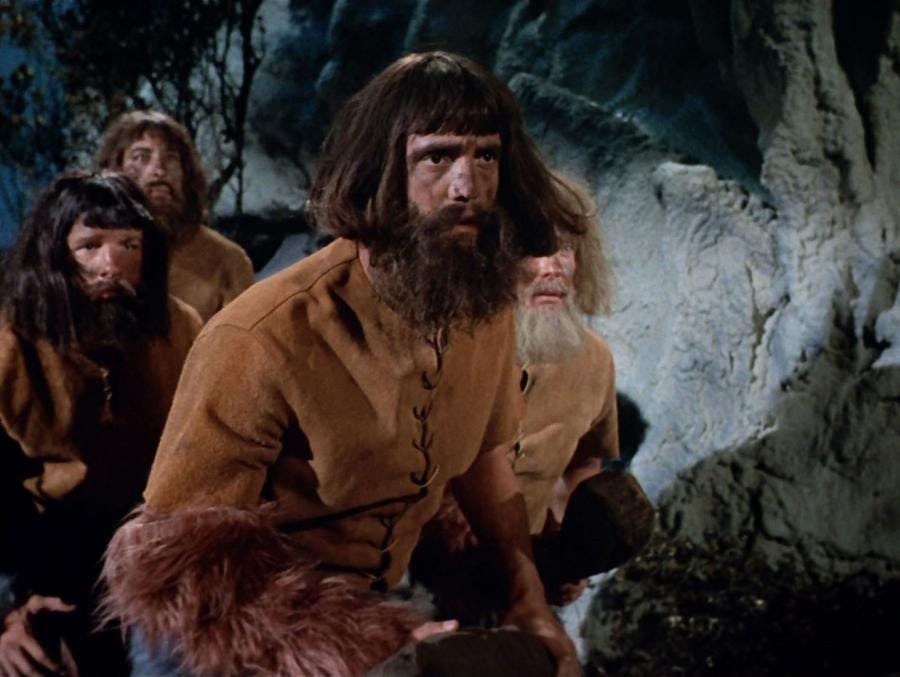
The Eymorg/Morg relationship is something of a spin on the Morlocks/Eloi setup from H.G. Wells' The Time Machine. Whereas the Eloi lived up top and were idle, they were actually the unwitting engine that kept the brutal, underground Morlocks alive. As with The Time Machine, the two halves of Sigma Draconis VI don't quite know how they ended up in their current setting. By the end of the episode, when Prime Directive-smashing Kirk comes to town, they are left having to figure out how to adapt for themselves.
CARTESIAN DIALECTIC
“Fascinating. It could explain much, Doctor. My medulla oblongata is hard at work apparently breathing, apparently pumping blood, apparently maintaining a normal physiologic temperature.”
For a half-baked episode of Star Trek, “Spock's Brain” has some fun things to say about the mind-body split. Due to Kara the Eymorg's expert surgical prowess (thanks to the Teacher, of course) she is able to scoop out the Vulcan gray matter without killing him.
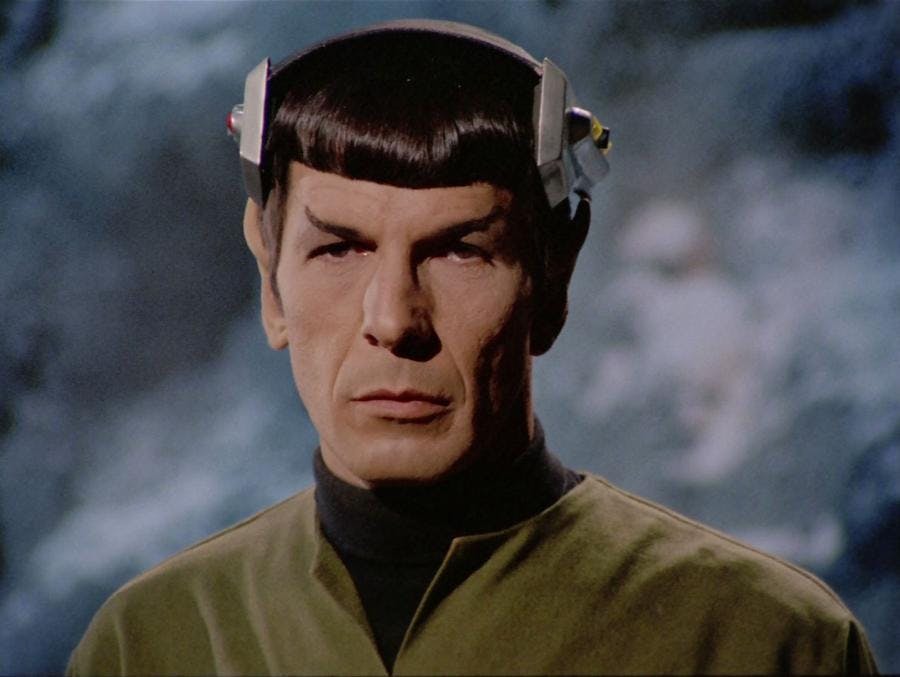
(Note: don't think this is a Vulcan trick. “Spock's Brain” posits that his Vulcan physiology makes him MORE dependent on his brain, hence Dr. McCoy's 24-hour ticking clock. Had Kara yanked out Chekov's brain, the implication is that the good doctor could – somehow – keep him alive longer!)
Spock is now “alive” in two places. His body is ordered around with a handheld device – something like a remote control Frankenstein's Monster. His perception, however, is floating in a void, powering and ultimately accessing the central Controller computers. (And on a Communicator frequency, lucky for Kirk and company.)
Which is the REAL Spock? Trekkies would probably argue that it's the brain – the mind – that is of paramount importance. Most of us were better at algebra than at climbing the rope in gym. Besides - when Kara first comes to the Enterprise and zaps everyone unconscious, she moves her way over to Spock and starts caressing his head, not his body.
THE TEACHER
More so than most episodes, “Spock's Brain” has some really outrageous things happening in the props department. There's the doohicky on Spock's head, the pushbutton pad that moves him around, the pain belts, and the bracelets the Eymorgs wear to activate them. There's the central controller, an opaque lighting fixture atop some white tubes (we first see it when Spock's disembodied voice says “stretches into infinity.”) And of course there are the radical-looking skirts and thigh-high boots (with straps?) that the Eymorgs wear. (Less appealing – the fuzzy legwarmers some of the Morgs wear around their forearms.)
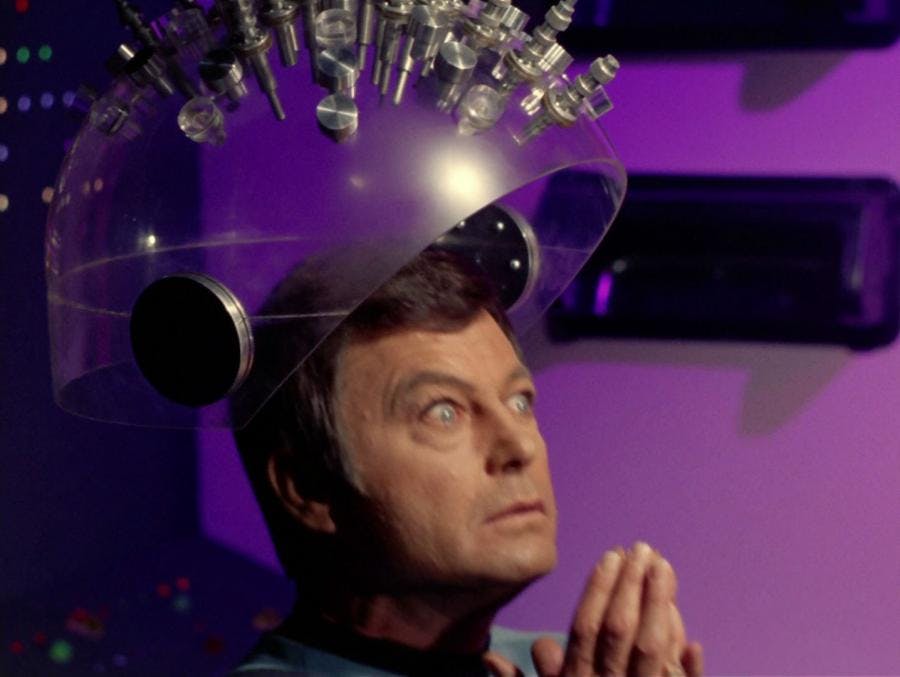
All of this is nothing compared to the Teacher – a giant hair dryer that blows genius into your head. For TOS snarkers, the dopey image of McCoy receiving wisdom from a plexiglass head dome is one of the top things they love to shove in our face. The others, of course, are Kirk holding an unfortunately shaped prop in the cave from “What Are Little Girls Made Of?” (Google it if you don't know) and Abraham Lincoln floating in space. But that's another One Trek Mind list, I suppose.
DREAMS
And yet with all this silliness – with Kirk interrupting Spock's attempt to make sense of this episode with “we don't have time for that!” or with Spock clearing his throat to better explain how to put his brain back in his head – there's a moment that “Spock's Brain” captures that really resonates for me.
After McCoy employs the Teacher, he's able to do the brain surgery. (Come on, it's not rocket science!) But after a few moments, the godlike powers of complex thought begin slipping away. At first his comments are “of course, of course. A child could do it.” Later, he's all “Uhhhhhhhhhhhh…”
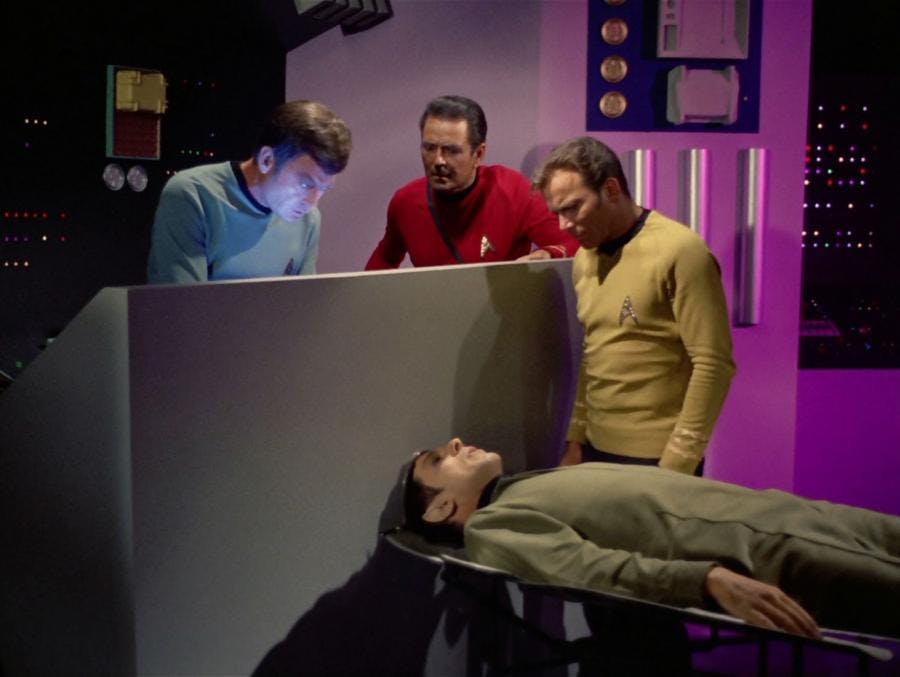
While I've never had my mind expanded by a leftover beauty parlor prop before, we've all experienced the moment of lucidity that comes when emerging from dreams. We've got a very real and specific understanding of how our subconscious has been communicating to us, and then it swiftly drains away, leaving only an ineffable and unsatisfactory aftertaste. Call me crazy, but the moment when McCoy loses his abilities always reminds me of this.
But what about you? Do you hate “Spock's Brain”? Do you love it for other reasons entirely? Even though you are not Morg or Eymorg, I invite you to the comments below and let me know what you think.
____________________
Jordan Hoffman is a writer, critic and lapsed filmmaker living in New York City. His work can also be seen on Film.com, ScreenCrush and Badass Digest. On his BLOG, Jordan has reviewed all 727 Trek episodes and films, most of the comics and some of the novels.

